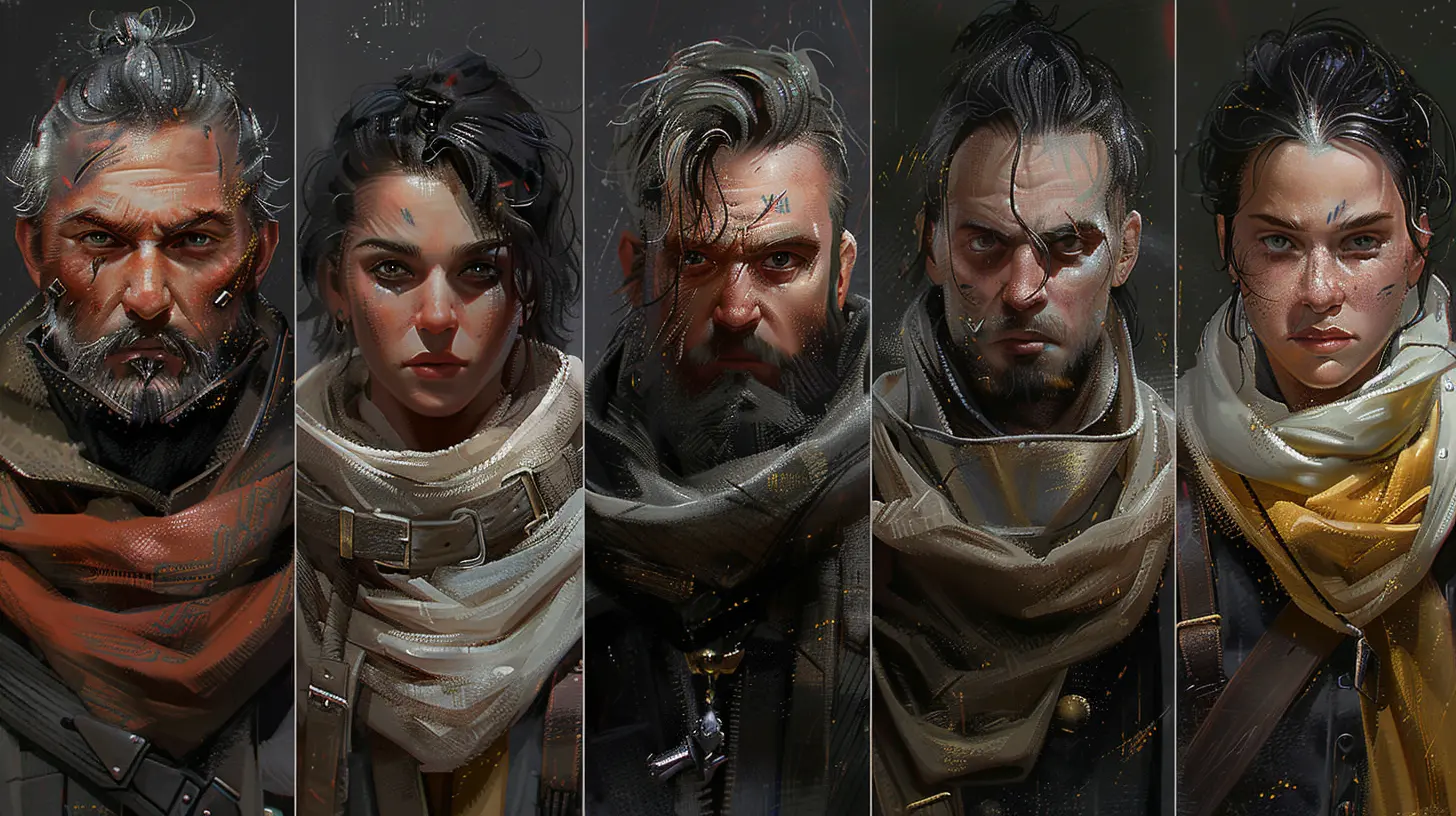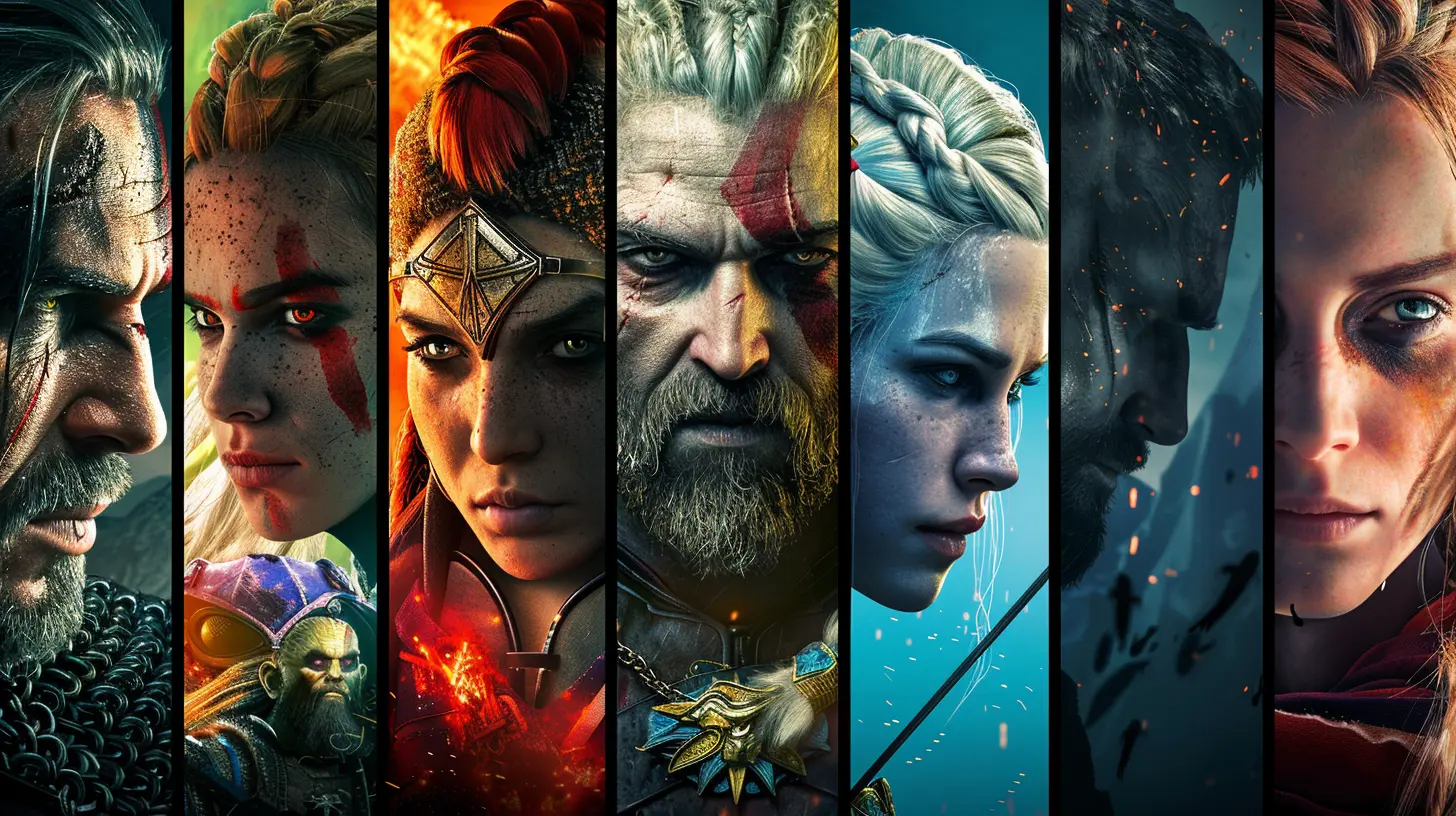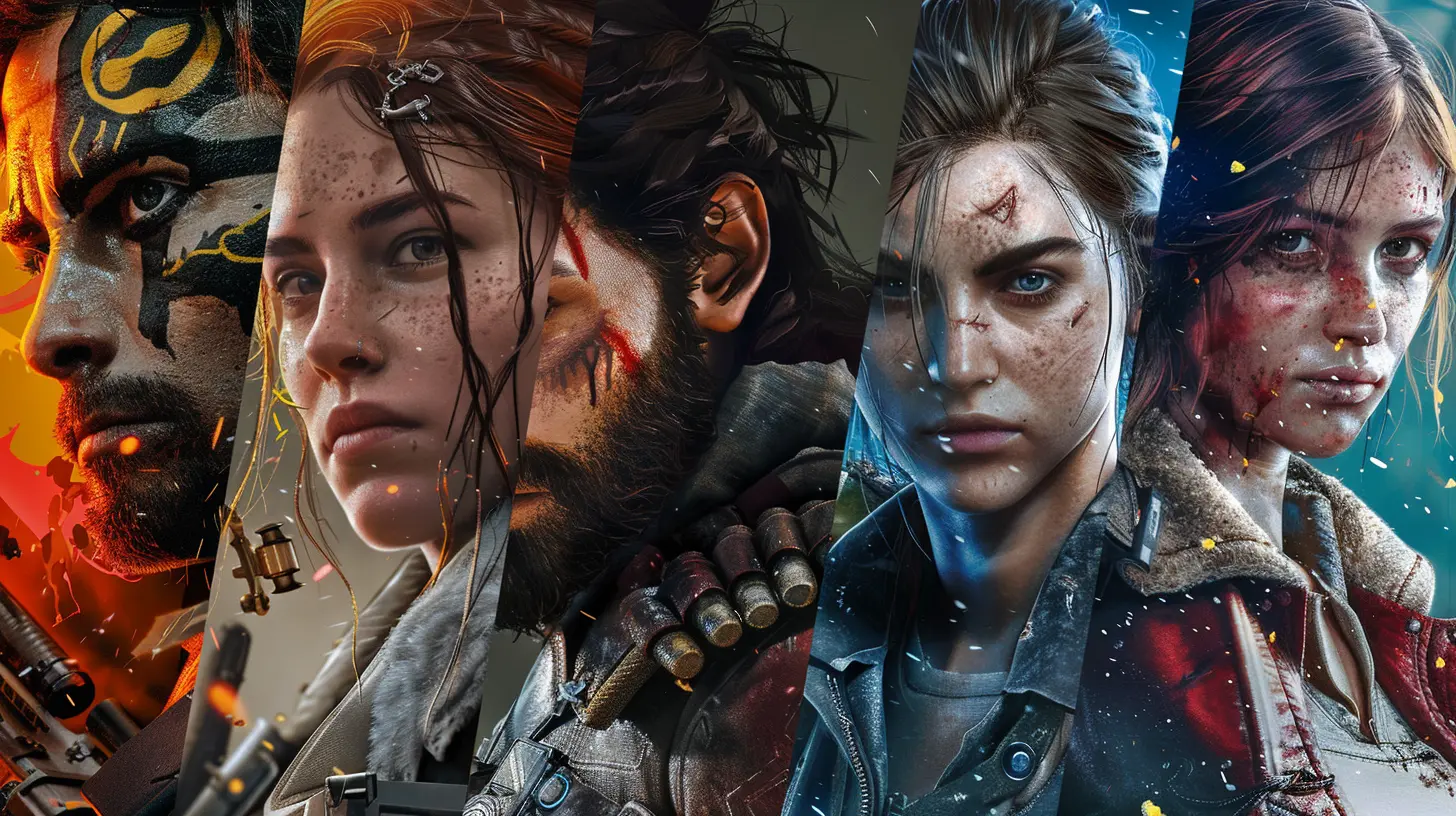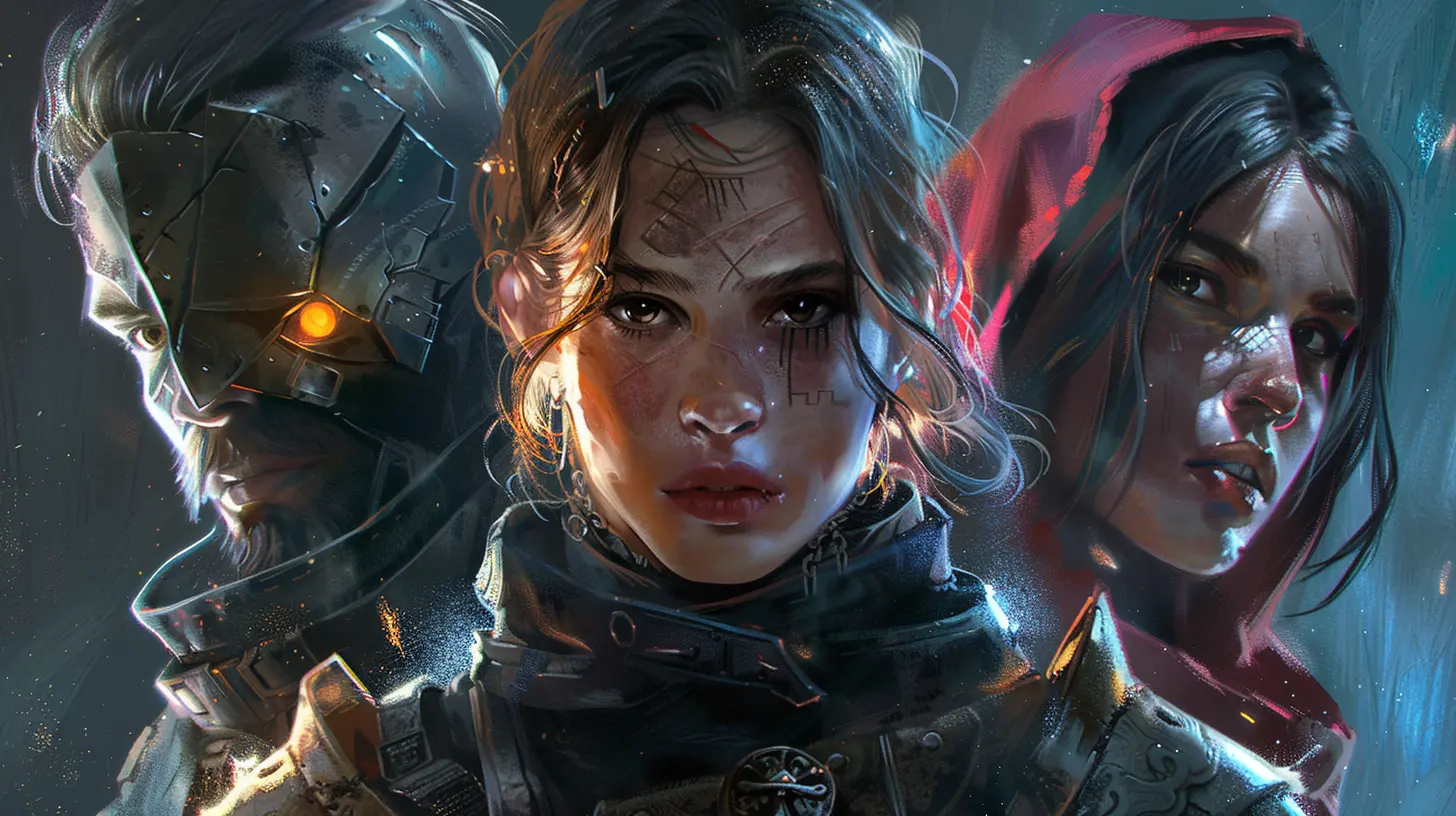How Voice Acting Elevated Game Characters
8 September 2025
Ever had goosebumps from a character in a video game? Maybe it was that heart-wrenching moment when a hero whispered their final words or a villain's sinister laugh echoing in your ears long after the screen faded to black. That kind of emotional punch? Yep, you can thank voice acting for that.
Voice acting has become a powerful tool in modern gaming, turning once-pixelated avatars into living, breathing personalities with soul, humor, and depth. It's no longer just about flashy graphics and smooth gameplay—it's also about connection. Voice acting is the bridge that makes us care.
So, let’s dive into how voice acting elevated game characters from silent protagonists to emotional powerhouses.
The Silent Era: When Silence Was The Norm
Before we could hear characters speak, games relied heavily on text boxes and clunky animations. Remember the old Legend of Zelda games? You’d move from one dialogue box to the next, reading everything, which, while functional, lacked that emotional weight.Characters had personalities, sure, but it was mostly left up to our imagination. And while that wasn’t necessarily bad, it did leave a lot unsaid—literally.
But then came the game-changer (pun intended): voice acting.
Voice Acting: A Whole New Dimension of Storytelling
Imagine watching a movie on mute. You’d see everything happening, but it wouldn’t hit the same. Now apply that to games. Once developers started adding real voices to characters, the narrative reached whole new heights.Characters Became Real People
When a character speaks with emotion—whether it’s fear, sarcasm, or joy—it’s easier to connect with them. Think about Geralt from The Witcher series. His gruff tone, sarcastic remarks, and quiet vulnerability? That’s not just well-written dialogue; it’s Doug Cockle’s voice acting that brings Geralt to life.Suddenly, characters weren’t just pixels. They had personalities, histories, and moods. They talked to us, scolded us, laughed with us—and we listened.
Dialogue Became More Than Words
Voice acting doesn't just deliver lines—it interprets them. A good voice actor adds layers: sarcasm, subtle inflection, hesitation, anger. You hear the pain in Joel's voice in The Last of Us, or the fierce conviction in Kratos’ deep growl in God of War. That emotional depth makes the scripted moments unforgettable.
The Evolution of Voice Work in Gaming
Let’s face it: early voice acting in games was… rough. Stiff delivery, awkward pauses, and lines that sounded like they were recorded in someone’s basement? All too common.But the industry learned fast.
The Rise of Professional Voice Actors
The more studios realized how much voice acting could elevate a game, the more they started working with actual, trained actors. Not just random people reading lines, but experienced professionals who could bring nuance to every word.Games like Mass Effect, Red Dead Redemption, and Bioshock brought in top-tier voice talent, and you could feel it. The characters became compelling and complex. You cried with them. You hated them. You rooted for them.
Mocap + Voice Acting = Pure Magic
Motion capture tech took things to a whole new level. Actors weren't just lending their voices—they were lending their entire performances. Facial expressions, body language, subtle mannerisms—everything was captured and rendered in-game.It wasn’t just acting. It was performance art.
Take Uncharted for example. Nolan North didn’t just voice Nathan Drake—he was Nathan Drake. The blend of motion capture and voice made it feel like you were watching a live-action film, but you were in control.
The Power of Voice in Player Choice Games
Let’s talk about games where you decide what happens—like The Walking Dead or Detroit: Become Human. These narrative-driven games live and die by player emotions.You’re making tough decisions, and it’s the voice acting that sells the weight of those choices.
When a character’s voice cracks with fear or softens with love, you hesitate before making a decision. Because now, it feels personal. You're not just guiding a silent avatar; you’re shaping someone’s life.
Voice acting turns choices into consequences you care about.
Iconic Characters Who Wouldn't Be The Same Without Their Voice
Let’s hit pause and spotlight some unforgettable characters whose voices made all the difference:- GLaDOS (Portal): Her passive-aggressive, robotic sarcasm made the entire portal-puzzling experience both hilarious and unnerving.
- Claptrap (Borderlands): Love him or hate him, that voice is burned into your memory banks forever.
- Arthur Morgan (Red Dead Redemption 2): Roger Clark’s layered and emotional portrayal of Arthur? Pure gold.
- Bayek (Assassin’s Creed Origins): His deep sincerity and tender moments gave the whole game a heart.
Imagine these characters without their voices. Would they hit the same? Probably not.
Diversity in Voice Performances
Voice acting also opened the doors for more diverse characters and stories.Different accents, dialects, languages, and emotions bring authenticity to a game’s world. It’s immersive and inclusive. You can tell a story set in feudal Japan (Ghost of Tsushima) or in a futuristic city (Cyberpunk 2077) and have voice actors who truly reflect those backgrounds.
It’s not just about sounding cool—it’s about honoring culture, language, and history through performance.
Why Gamers Care More Than Ever
We’re in the golden age of gaming storytelling. Voice acting is no longer an afterthought—it’s often the heart of the whole thing. And gamers notice.We care because we want to feel something. We want experiences that stay with us. Voice acting enables that emotional connection, whether we're slaying dragons or navigating post-apocalyptic ruins.
When a character whispers, “Thank you,” or screams in rage, we feel it. And that makes all the difference.
Not Just Talking—A Whole Performance
Voice acting in games isn’t just about reading lines—it’s about crafting a performance. Great voice actors aren’t background noise; they’re storytellers, artists, and emotional conduits.Think of it like seasoning in a dish—you might not notice it right away, but take it out and everything feels a little flat. The best voice acting elevates the game’s entire flavor.
Challenges in Game Voice Work
It’s not all fun and fame, though. Voice acting in games is intense. Actors have to:- Record thousands of lines with different emotional tones
- Perform non-linear dialogues (which can be super confusing)
- Sometimes scream or shout for hours (hello, vocal strain!)
- Work without seeing the final game visuals
And yet, the best ones pull it off like pros.
The Future of Voice Acting in Games
So where are we headed?With advances in AI, mocap, and immersive narratives, voice acting will only become more essential. We might even see more famous actors jumping into roles (like Keanu Reeves in Cyberpunk 2077), or new talents rising from the indie scene.
One thing’s clear: the line between Hollywood and gaming is blurring. And voice acting is the glue holding it all together.
Wrapping It Up
Voice acting has reshaped gaming. It’s taken basic characters and infused them with emotion, depth, and realism. We now play games not just to win but to feel something—to laugh, cry, rage, love.Next time you’re deep into a game and feel a lump in your throat or a chill down your spine? Thank the voice behind the character. Without them, the game wouldn’t hit the same.
So yeah, voice acting didn’t just elevate game characters—it transformed them.
all images in this post were generated using AI tools
Category:
Best Game CharactersAuthor:

Luke Baker
Discussion
rate this article
1 comments
Caleb McMurtry
Voice acting has revolutionized character development in gaming, adding depth and emotional resonance that resonates with players. Iconic performances bring stories to life, fostering stronger connections and memorable experiences, ultimately transforming how we engage with virtual worlds.
September 27, 2025 at 4:13 AM

Luke Baker
Absolutely! Voice acting has indeed enriched character depth and emotional engagement, creating lasting connections and transforming player experiences in gaming.


